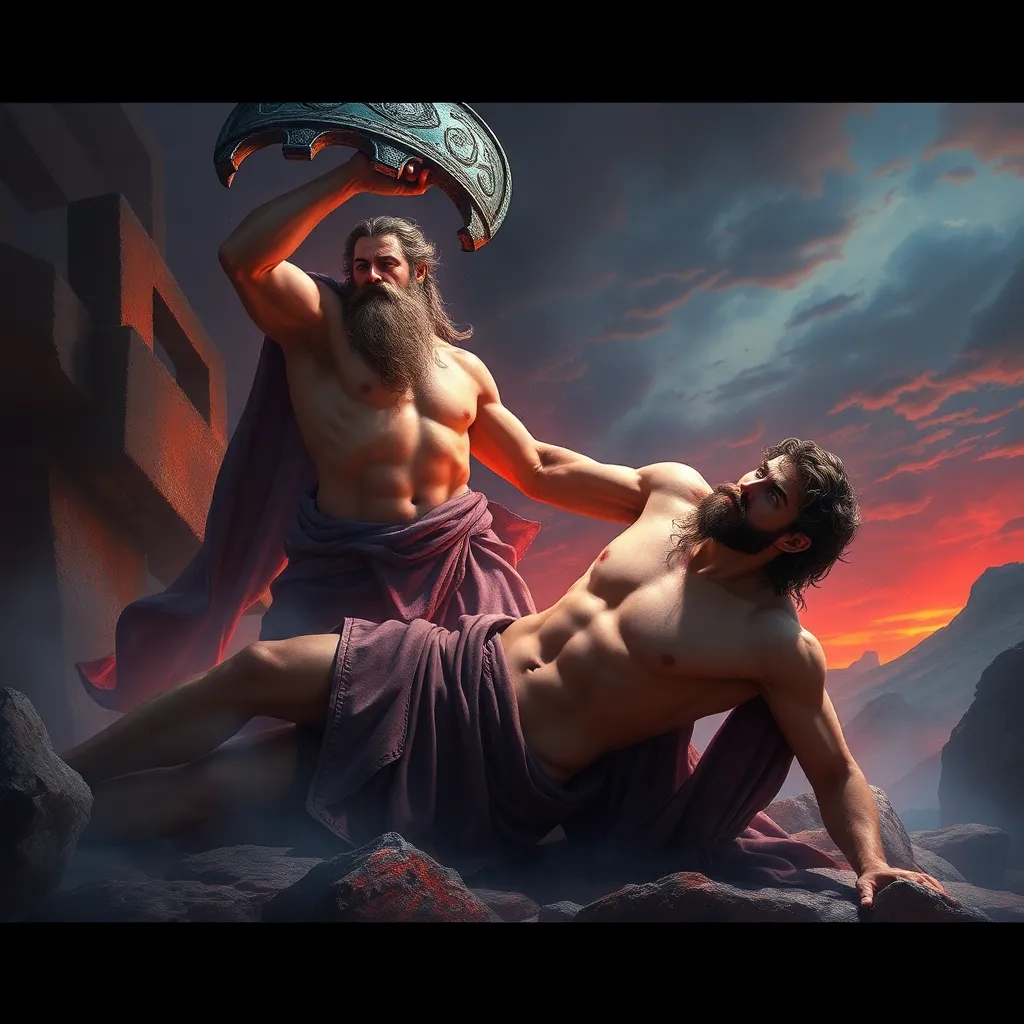The Tragic Death of Heracles: Understanding His Final Moments
I. Introduction
Heracles, known for his incredible strength and heroic feats, stands as one of the most significant figures in Greek mythology. His life is a tapestry of adventure, valor, and profound tragedy. From slaying the Nemean Lion to completing the Twelve Labors, Heracles embodies the ideal hero yet is forever marked by the weight of fate and misfortune.
This article aims to delve into the tragic circumstances surrounding Heracles’ death, examining the events that led to his demise and the implications of his suffering. Through understanding Heracles’ final moments, we gain insight into the themes of heroism and tragedy that resonate throughout mythology.
II. The Journey of Heracles: A Hero’s Life
Heracles’ life is characterized by a series of remarkable achievements, known as the Twelve Labors, which were assigned to him as penance. These labors include:
- Slaying the Nemean Lion
- Slaying the nine-headed Lernaean Hydra
- Capturing the Golden Hind of Artemis
- Catching the Erymanthian Boar
- Cleaning the Augean Stables in a single day
- Slaying the Stymphalian Birds
- Capturing the Cretan Bull
- Stealing the Mares of Diomedes
- Obtaining the Girdle of Hippolyta
- Fetching the Cattle of Geryon
- Bringing back the Apples of the Hesperides
- Capturing Cerberus, the three-headed dog
While these feats highlight his bravery and unparalleled strength, they also reveal his flaws, such as impulsiveness and vulnerability to manipulation. The duality of heroism and tragedy defines Heracles; despite his god-like abilities, he remains deeply human, plagued by personal struggles and the relentless hand of fate.
III. The Role of Fate and the Gods
In Greek mythology, the gods wield immense power over human destinies, and Heracles’ life is no exception. From his birth, he was marked by divine intervention and conflict. Zeus, his father, sought to protect him from Hera’s jealousy, yet Hera’s wrath would haunt Heracles throughout his life.
The concept of fate is central to Greek mythology, representing a predetermined path that even the mightiest heroes cannot escape. Key events that foreshadow Heracles’ tragic end include:
- The madness sent by Hera, which led him to kill his wife and children
- The prophecy that his greatest challenge would come from within
- The curse from the centaur Nessus, which ultimately sealed his fate
These events illustrate how divine forces and fate intertwine, setting the stage for Heracles’ ultimate tragedy.
IV. The Incident with Deianira
Heracles’ marriage to Deianira is a poignant aspect of his life. Initially, it was a union based on love, but jealousy and misunderstanding soon clouded their relationship. Deianira, feeling insecure about Heracles’ affections, was manipulated by Nessus, a centaur who had attempted to abduct her.
Nessus, in a final act of vengeance, gave Deianira a poisoned shirt, claiming it would ensure Heracles’ love for her. Unbeknownst to her, this garment was cursed, destined to inflict unbearable pain on Heracles.
This incident highlights the tragic interplay of love and jealousy, leading to catastrophic consequences that neither Heracles nor Deianira could foresee.
V. The Final Moments of Heracles
As Heracles donned the poisoned shirt, he was consumed by excruciating pain. The fabric clung to his skin, burning and torturing him with each passing moment. In his anguish, he experienced a profound emotional and psychological turmoil, facing the reality of his fate with a mixture of despair and acceptance.
Despite his suffering, Heracles demonstrated remarkable resilience. He sought to end his torment by building a funeral pyre on Mount Oeta, where he could finally find peace. In his final moments, he embraced his mortality, acknowledging the inevitability of his fate and the tragic irony of his life as a hero.
VI. The Legacy of Heracles’ Death
The death of Heracles left a profound impact on Greek mythology and culture. His demise serves as a poignant reminder of the fragility of human existence and the unpredictable nature of fate. The symbolism of his tragic end resonates in literature and art, representing the ultimate sacrifice of a hero who, despite his strengths, could not escape the clutches of destiny.
Heracles’ life and death offer valuable lessons, including:
- The importance of humility in the face of power
- The consequences of jealousy and misunderstanding
- The acceptance of one’s fate, regardless of the circumstances
VII. Comparisons to Other Tragic Heroes
Throughout mythology and literature, numerous tragic heroes share similarities with Heracles. Figures such as Achilles, Oedipus, and Prometheus also grapple with themes of hubris, fate, and redemption. Each story reflects the struggles of these characters against their destinies, leading to their ultimate downfalls.
However, Heracles holds a unique place among these figures. While he embodies the classic traits of a tragic hero, his journey is marked by a blend of heroic triumph and profound vulnerability, showcasing the complexities of human nature.
VIII. Conclusion
In examining the tragic death of Heracles, we uncover the intricate layers of his character and the themes that define his life. His journey from heroic feats to heartbreaking demise encapsulates the duality of heroism and tragedy, offering a timeless reflection on the human experience.
Heracles’ legacy endures, serving as a reminder of the balance between strength and vulnerability, and the acceptance of fate that governs us all. His story remains a powerful testament to the nature of heroism, tragedy, and the lessons that echo through time.




